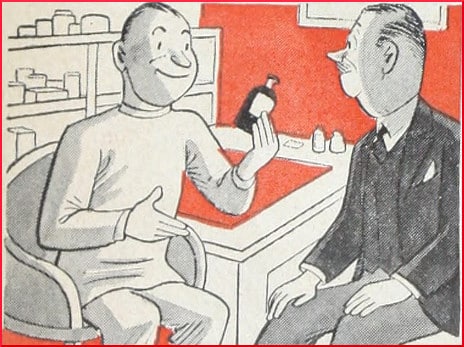
Not long ago, Childhood Obesity News talked of the human penchant for contradictory behavior. People know what they are not supposed to do, and do it anyway. They know what they are supposed to do, and neglect to do it.
The worst part is, people often don’t even realize their own inconsistencies. They don’t know the difference between reality and its opposite. People suffer from cognitive dissonance, or the ability to hold two contrary ideas as true, that can’t both be. A person can scarf down the most awful diet, and still sincerely believe that he only takes one cheat day per week.
According to the MDVIP Fat IQ quiz, 83 out of 100 Americans self-report that “hearing from a doctor that they need to lose weight would motivate them.” Their research also found that 90% of people “say they would be influenced if a doctor told them that they have a serious health risk.”
Let us be clear about what this spells out. Nine out of 10 of people claim that, if a physician warned them of a health risk (such as that posed by obesity), they “would be influenced.” That was 90%. At the same time, if these ratios are to be believed, 25% of Americans, or one out of four, “have actually put off or considered delaying a doctor’s appointment until they lost weight.”
In other words, a certain number of people believe, and claim, that they would be influenced by a doctor’s warning — and, at the same time, they avoid the possibility of being given that warning, by simply not going to the doctor. This is cognitive dissonance at its finest.
Devil’s advocate
We also mentioned how some doctors doubt that any person could possibly be overweight or obese, and not realize it. Part of the evidence is, we know the world is full of bullies who will constantly remind the overweight or obese person, of any age, that they are “other.”
Some might say, when a person doesn’t fit in an airplane seat, do they really need a doctor to tip them off? Apparently so. Some might say, this is a weak excuse for behaving in a way that is generally acknowledged to be less than optimal. They want to blame the doctor.
If it is not a game of blame-the-doctor, some might wonder why only one out of five Americans actually asked their primary care doctor for “weight loss help or advice.” But surely, if asked, doctors would have some different answers about how many patients they tried to warn.
A lot of doctors can’t help blaming the patients, regardless of how unfair that might be. There is an alternative course that few thought leaders appear to have considered. Maybe this whole matter of miscommunication and misinterpretation between doctor and patient could be peacefully resolved by admitting that this is not, on the whole, the most useful kind of doctor.
It might be that what people need is a different kind of doctor. It is possible that, after a basic physical exam to rule out any immediate threat, the vast majority of patients afflicted with obesity should be referred to mental health professionals.
Your responses and feedback are welcome!
Source: “The Grades Are In: Most Americans Score An ‘F’ on Fat IQ Test,” PRNewswire.com, 06/26/18
Photo credit: Internet Archive Book Images via Visualhunt/No known copyright restrictions

 FAQs and Media Requests:
FAQs and Media Requests: 











